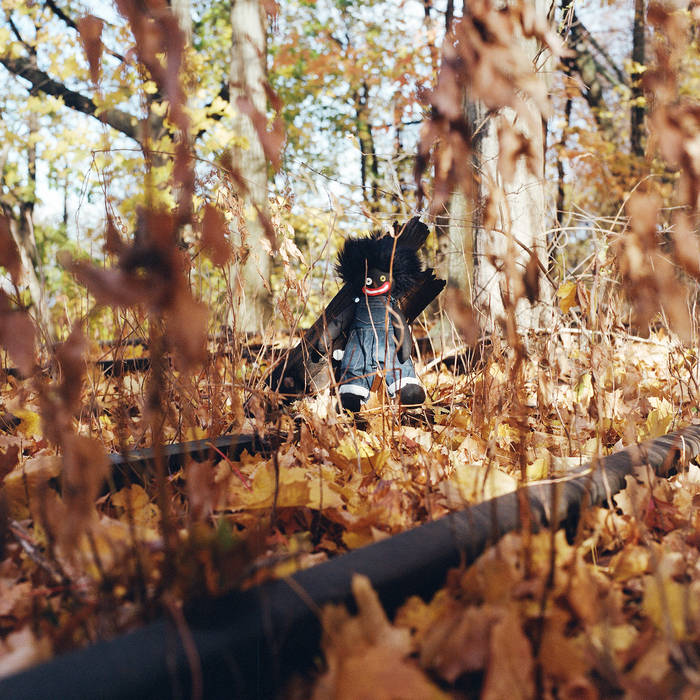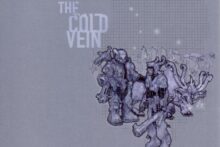At nine, Billy Woods was already creating worlds; he penned a story about an evil golliwog. His mother, a Jamaican professor of English literature, described it as derivative. His father, a Marxist exile from Zimbabwe, carried the scars of political warfare. These ghosts aren’t just part of his past; they’re woven into the very architecture of his music. They don’t speak; they’re felt, haunting every line.
Here we are, decades later: older, sharper, more haunted, still in conversation with that shadow. Golliwog isn’t just a return to that early story; it’s a reckoning with the symbols we inherit and the selves we outgrow. It’s not a neat arc, but a jump scare. A warning. A scream muffled behind a mask.
The eighteen-track album opens with a familiar fog: lo-fi creaks, static, echo. It’s cinematic but cracked. A woman cries on ‘Waterproof Mascara’, distant laughter, wind rustling through colonial ruins. On ‘Misery’, produced by Kenny Segal, Woods drifts like a ghost in a house built by guilt and grief. The outro samples Beloved, Toni Morrison’s haunting exploration of memory, motherhood, and pain. Sethe’s voice cuts through: “You can go… she’s what I need.” Her refusal to let go of the past finds new life here, recast as emotional architecture. More Beloved references return in ‘Lead Paint Test’, with Woods muttering “my beloved home” like a curse or lullaby. The phrase doesn’t just echo; it grows mildew. It ferments past maturity.
Woods is a master of disorientation. On ‘Cold Sweat’, he captures the horror of powerlessness through dream logic: you’re on a table, surrounded by music executives, forced to dance. An image of commodification and spectacle. Then another turn: you wake up next to an ex you never broke up with. These conundrums are nightmare loops. Shame, confusion, history… nothing ever ends. You just wake up in it again.
Throughout Golliwog, Woods explores being disfigured by history, by fame, by violence, by memory. The title itself reclaims a racial slur and repurposes it into armor. His verses twist and refract:
“I spent all summer digging myself out of graves.”
“You can’t run with wolves when you’re a stray.”
“I ran, I’m not tough.”
There’s raw vulnerability here. A refusal to perform traditional masculinity. On ‘Doll Fulla Pins’, jazz gives way to cold paranoia. Woods doesn’t posture. He confesses. Then guest vocalist Yolanda Watson arrives like a siren, offering something close to tenderness.
One of the most scathing tracks is ‘Blk Zmby’, where Woods tears into the postcolonial spectacle of power. The zombies aren’t metaphors, they’re presidents and puppet rulers. Lavish, hollow, dead inside. They chuckle behind French doors, their feet stuffed in Ferragamo. It’s grotesquely true. The dead walk among us, dressed to the nines.
Even with its standout moments, Golliwog resists dissection. This isn’t an album of singles, it’s a haunted house. Every beat feels like a creaking floorboard. Every verse, a door swinging open to memory. ‘Star 87’ evokes quiet paranoia. ‘All These Worlds Are Yours’ opens with Woods delivering a stark, slum poetry-style recounting of watching a man die in the hall, his words distant and detached, as if this is just another image he’s grown numb to. There’s horror, detachment, and deep personal sorrow. The production credits read like a fever dream: The Alchemist, Kenny Segal, EL-P, Conductor Williams, Preservation, Messiah Musik, Sadhugold, Ant, Shabaka Hutchings, Steel Tipped Dove, DJ Haram, Willie Green, Jeff Markey, Saint Abdullah, and Human Error Club. And yet, the sound holds together. Disorienting, yes. But deliberate. Woods is the constant: his voice measured, ghostly, sometimes smirking.
This is the kind of album that rewards repeat visits. Not because it’s catchy, but because it’s coded. Every line is a double exposure. References to MF DOOM’s masks, to Frantz Fanon, to estrangement. The call is coming from inside the house. And yet, there’s always a glimmer of wit:
“Bitter harvest, whether House Atreides or Harkonnens, that oil gotta flow.”
The record doesn’t end cleanly. The final track, ‘Dislocated’, fractures any hope of resolution. Woods sounds undone, unraveling. Like a rag doll pulled between worlds. But this time, he’s not running. The ghosts are still here. But now, they answer to Billy.



